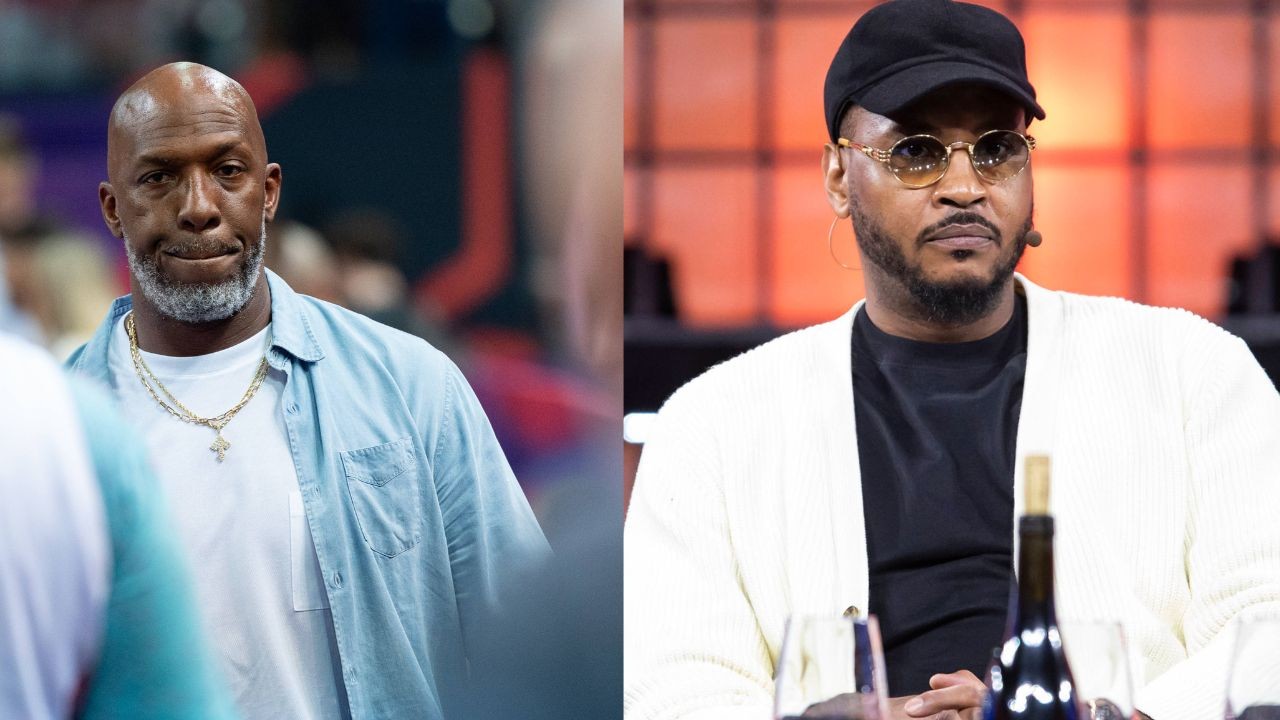Following a successful 19-year NBA career, Carmelo Anthony has finally been enshrined in the Naismith Basketball Hall of Fame. Although the legendary forward never won an NBA championship, he has achieved something only a select few have. Putting on that orange jacket signifies an accomplishment of the highest degree. Anthony may be on the mountaintop now, but his career wasn’t a straight path upward.
Carmelo Anthony holds a reputation as one of the greatest scorers of all time. The 10-time All-Star dominated from the very first time he stepped foot on an NBA court. In the first 13 years of his career, he averaged at least 20 points per game. Those stellar performances came when he was the main scoring option on his team.
Once Anthony’s role began to change, his value as a player decreased. Teams began to view Anthony as selfish in terms of his play style. He wasn’t a great defender and wasn’t an ideal shooter since he operated mostly in the mid-range. As a result, he went the majority of the 2018-19 season without a team.
It wasn’t until the Portland Trail Blazers gave him an opportunity in November of the 2019-2020 campaign that Anthony quickly proved that he was worthy to be on an NBA roster the entire time. People began raising questions as to why teams didn’t want to take a swing on an all-time great. His former teammate, Chauncey Billups, knew the answer.
“Melo was like a good teammate, man. ‘Melo practiced every day. He didn’t miss any games. Now the only thing I will say–and I’ve even told ‘Melo this–scoring 30 meant too much to ‘Melo,” Billups said on SiriusXM NBA Radio back in 2019.
Only a few players know Anthony on a personal level and Billups is one of those people. The 6-foot-3 guard spent three seasons with Anthony, assisting the forward to his only Conference Finals appearance with the Denver Nuggets in 2009. Billups didn’t hesitate to address Anthony’s almost toxic obsession to score.
“It meant too much because he could have games where he had 20, 22 [points], we win the game and he’s mad. He might have 36 and he’s in there, you know, we lose the game and he’s in there picking everybody up,” Billups said.
“He hasn’t mentally taken that step back to say, ‘OK, I’ll come in and play against back-ups. I’ll try to help the team out. I know I might not be able to close, but I just want to help.’ Well, he’s not there yet,” he added.
At the time, Billups’ comments may have seemed harsh, but they certainly had merit. In Anthony’s sole season with the Oklahoma City Thunder, he had laughed at the notion of head coach Billy Donovan bringing him off the bench. But that absence from the NBA humbled Anthony drastically.
After his first season with the Trail Blazers, he happily accepted a bench role, which would become the norm for his remaining two seasons. Anthony may not have been able to end his career on his terms, but he was still able to do so as a contributing rotational player.

